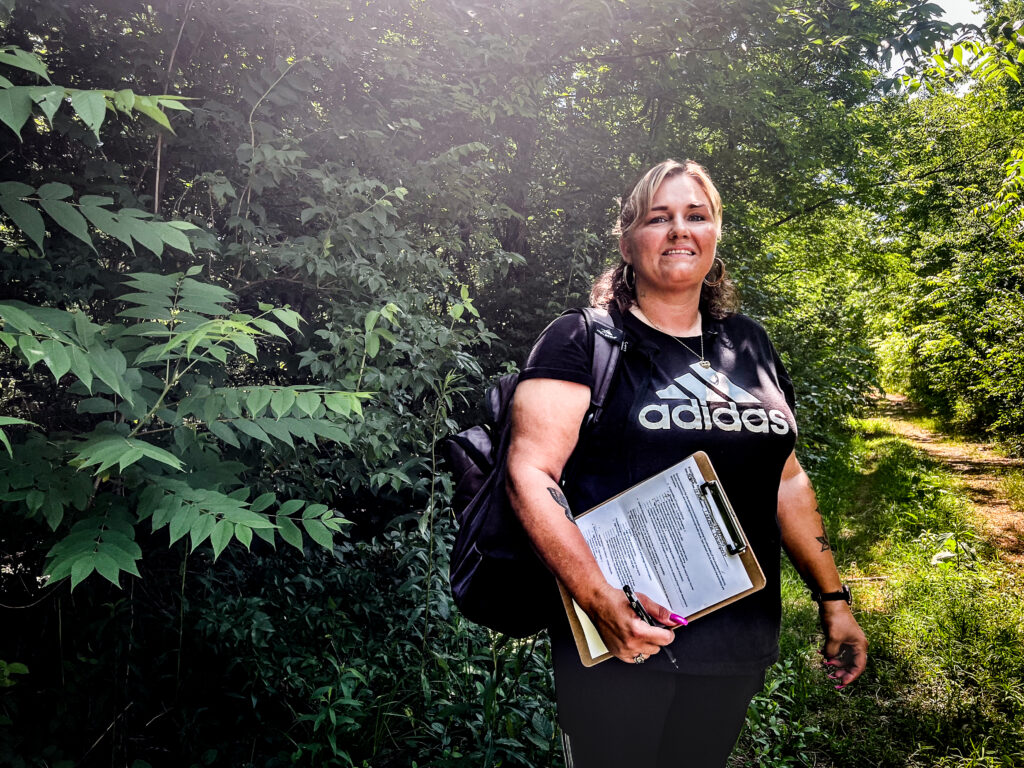
Nashville’s strategy of clearing encampments to connect unhoused people with places to live is entering its next phase. The Metropolitan Homeless Impact Division says they’re finalizing assessments of campsites to decide which ones will get extra attention in the coming weeks.
On a recent morning in Madison, outreach coordinator Lakisha Davenport traveled to a campsite sandwiched between train tracks and a large parking lot. She talked with a 34-year-old man named David, answered his questions and promised a follow-up.
“I’m gonna give you my business card,” she said. “Call me, but I’ll be in touch with you as well. OK?”
Places like this one are scored by what officials refer to as level of “threat.” They’re looking at things such as terrain, proximity to businesses, special needs of residents and drug use. One team compiles those scores. Then another team will decide which camps are first in line for housing.
In Phase 1, more than 100 people were moved — primarily into transitional housing. Some advocates disagree with this strategy. They cite unintentional racial bias and additional trauma from numerous moves. April Calvin, director of the division, though, defends the approach.
“When you have limited resources, then you have to do a prioritization path,” she said, citing guidance from the U.S. Department of Housing and Urban Development. “Following best practices will allow us to house those that are most vulnerable, will allow us to focus on the people, the environment, and then the location.”
During Metro’s assessment visit, one woman asked to remain anonymous for safety reasons. She said she’s been unhoused off and on for 10 years — and she keeps being overlooked.
“People and organizations say that they’re gonna help, but they don’t. They come in and you never see ’em again.”
She said she knows people assume she’s on drugs or a sex worker. “And that’s not true,” she said. “I’m not gonna lie. I’ve had my dabbles with drugs, but that just caused more problems than really is worth. Because of being labeled.”
She said one organization helped her get an apartment but she was evicted. “I was in bed sleeping and I got woke up by the police officers and they just threw me out like trash. So no matter where you go, for me, I just keep getting thrown out like trash.”
Davenport listened nearby. She can relate to the feelings because she was also unhoused before coming to this work. She said she hopes to be the outreach she never had.
“I get to see people’s lives impacted so dramatically,” she said. “The joy of somebody else’s success is amazing.”

